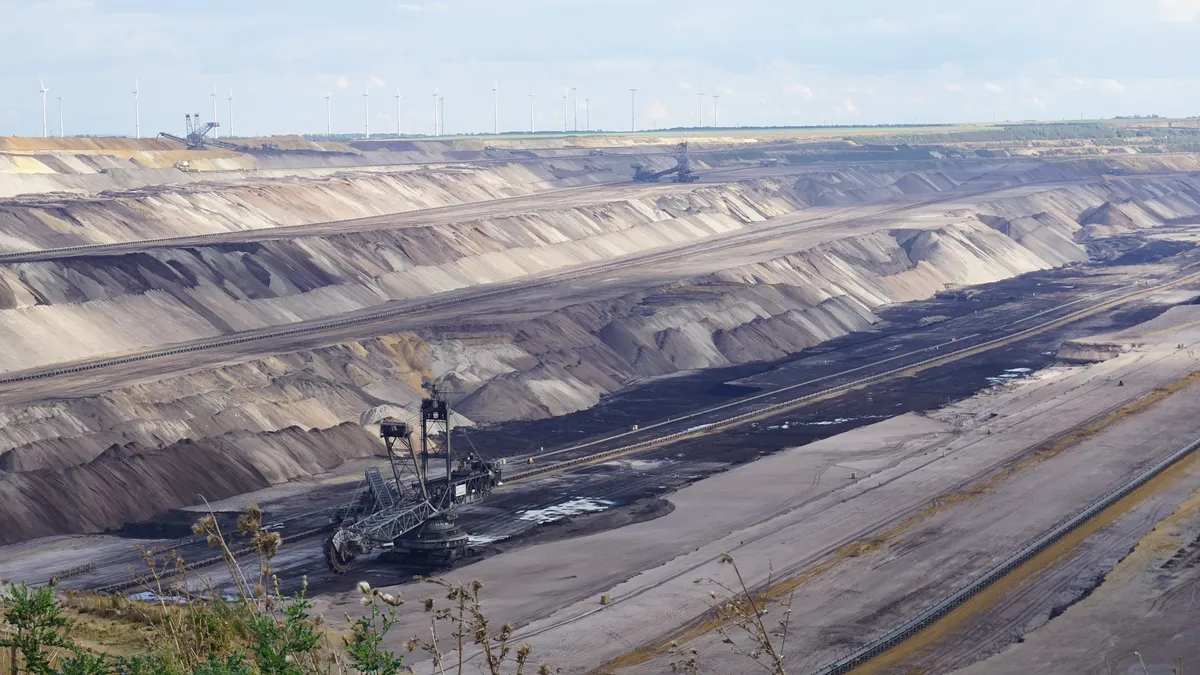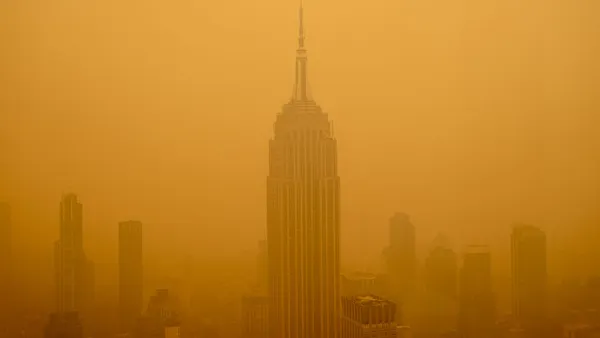Dive Brief:
- New legislation would charge fees to large corporations responsible for greenhouse gas emissions and use the money to fund environmental justice initiatives and help communities reliant on fossil fuels transition away from them.
- The Save Our Future Act, introduced by U.S. Sens. Sheldon Whitehouse, D-R.I., and Brian Schatz, D-Hawaii, would use those fees to invest $255 billion over 10 years into existing energy affordability, pollution reduction, business development, career training, and tribal assistance programs to further environmental justice in communities that have faced underinvestment. It would also provide checks to low- and middle-income families and $10 billion in block grants to states and tribes to help defray expenses related to climate change.
- The bill would invest another roughly $120 billion over 10 years to help communities traditionally reliant on fossil fuels with economic development, infrastructure, environmental remediation and assistance to local and tribal governments. It also would provide five years of wage replacement, health, retirement and education benefits for fossil fuel workers in those communities who lose their jobs.
Dive Insight:
The bill comes as Congress continues to debate a massive investment in infrastructure through President Joe Biden's American Jobs Plan. While negotiations are ongoing, a bipartisan alternative has emerged that would invest less in addressing climate change, to the dismay of environmental groups. This bill ties into recent public and private efforts at many levels to make polluters pay for emissions and take more responsibility for their impact on the environment.
Whitehouse and Schatz said this legislation would reduce greenhouse gas emissions by 50% after 10 years, and in doing so it would help parts of the country that have been most impacted by the effects of climate change, which are traditionally low-income. In a statement, Whitehouse said the legislation would help "the American families and communities that have for too long borne the brunt of climate change and air pollution, all while speeding the transition to a green economy and making the air safer to breathe."
The bill would price greenhouse gases and air pollutants at their social cost, based on academic research from environmental and public health experts. Pricing for carbon dioxide emissions would begin at $54 per pound in 2023, in keeping with the Office of Management and Budget’s social cost of carbon estimate, and rise at an inflation-adjusted 6% annually. The bill's authors estimate that the carbon dioxide tax alone would raise more than $2.4 trillion over 10 years. Nitrogen oxides, fine particulate matter and sulfur dioxide emissions would also be priced by the pound.
Environmental groups said the proposal would have a big impact on areas that have been most affected by carbon emissions, like those located near highways, industrial complexes and facilities for other high-emitting sectors. It comes on the heels of a study published last month in the Proceedings of the National Academy of Sciences journal, which found that the combined health effects of ozone pollution that such emissions can generate and extreme heat disproportionately hurt poorer areas, based on an analysis of hospitalizations by ZIP code in California.
"This proposal advances the conversation around climate action that is just, equitable and ambitious," Dan Lashof, director of the World Resources Institute in the United States, said in an email. "We urge members of Congress to seize this opportunity to engage meaningfully on climate policy that reinvests in our communities, addresses criteria pollutants that most plague front line communities, and drives down greenhouse gas emissions."
The bill is also notable for providing economic support to communities that traditionally have been reliant on fossil fuels. Mayors have already proposed more localized action, including through the "Marshall Plan for Middle America," introduced late last year in a bid to help coal and steel communities transition toward a greener, more sustainable economy. Indeed, Pittsburgh Mayor Bill Peduto has previously said that local leaders must ensure job creation and benefits in the transition away from fossil fuels.
The Utility Workers Union of America (UWUA) estimates there are about 100,000 people working in coal and mining facilities today and said the five-year assistance plan for displaced workers represents "a baseline of support."
"No one wins when the best source of good-paying jobs around suddenly shutters, devastating families and businesses," UWUA President James Slevin said in a statement. "Coal plant and mine closures cause chaos that tears at the fabric of communities and our members' lives. Senator Whitehouse's and Senator Schatz's legislation offers a better path forward for coal communities – one where individuals have an opportunity to forge ahead toward a new career while remaining in the communities where they have deep social and economic ties."












